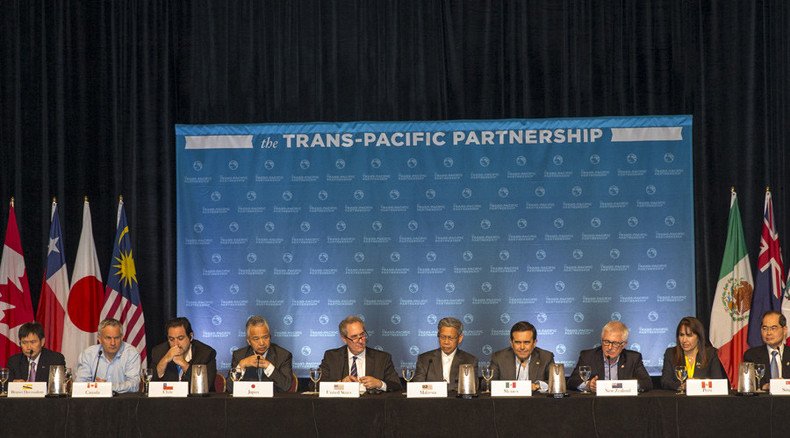TPP copyright provision: Countries to adjust their laws to match US policy

New Zealand, one of 12 Pacific Rim nations that signed the Trans-Pacific Partnership trade agreement, has revealed that the section dealing with intellectual property almost aligns perfectly with how copyright law is handled within the US.
The deal makes intellectual property law in signatory countries fall in line with the US's Copyright Extension Act – known derisively as the Mickey Mouse Protection Act due to the lobbying efforts of Disney – and makes copyrights last for 70 years beyond the death of the creator.
This means that the Trans-Pacific Partnership (TPP) mandates a 20-year bump up from current New Zealand law, according to a PDF released by the New Zealand government. Currently, copyright owners are only granted a 50-year period of postmortem copyright ownership.
READ MORE: 12 countries strike Pacific Rim trade accord
“TPP requires New Zealand to move to 70 years as well, but allows for a transition to do this over time,” the document said.
The costs of new IP rules are predicted to outstrip any benefits to the New Zealand economy.
"This change could benefit New Zealand artists in some cases, but the benefits are likely to be modest,” the New Zealand government wrote. “This cost – in terms of foregone savings on books, films, music and other works – increases gradually over 20 years and averages around $55 million a year over the very long term.”
But the document says that this is an acceptable loss – the TPP is expected to inject the economy of New Zealand with an at least 2.7 billion NZD by 2030 billion thanks to the breaking down of trade barriers between countries.
One of the biggest winners of the agreement’s IP provision was Disney, according to Jordan Carter, chief executive of non-profit InternetNZ.
"People who own copyrighted material that was about to expire, and they would lose the royalties from that will keep those royalties for another 20 years,” he told Radio New Zealand. “So it benefits people who've got famous pieces of intellectual property from the 1930s and '40s; Mickey Mouse owned by the Disney Corporation is a classic example.”
READ MORE: What is the Trans-Pacific Partnership and why you should care
The government also assured that the agreement wouldn’t require Internet service providers to "terminate accounts for Internet copyright infringements." In the US, many of the top ISPs have a six-strike consumer infringement policy, according to Ars Technica.
The accord took five years of negotiation before the members came to an agreement on Monday. Member nations together represent two-fifths of the world’s economy.
The TPP has drawn intense scrutiny, with opponents of the deal pointing out that the deal was negotiated in secret, since the text will not being available to the public until the end of this year. Labor unions and many others have said that what we do know about the deal involves giving benefits to corporations in participating nations, not workers. Concerns include internet privacy, environmental protection and pharmaceutical monopolies.
LISTEN MORE:













